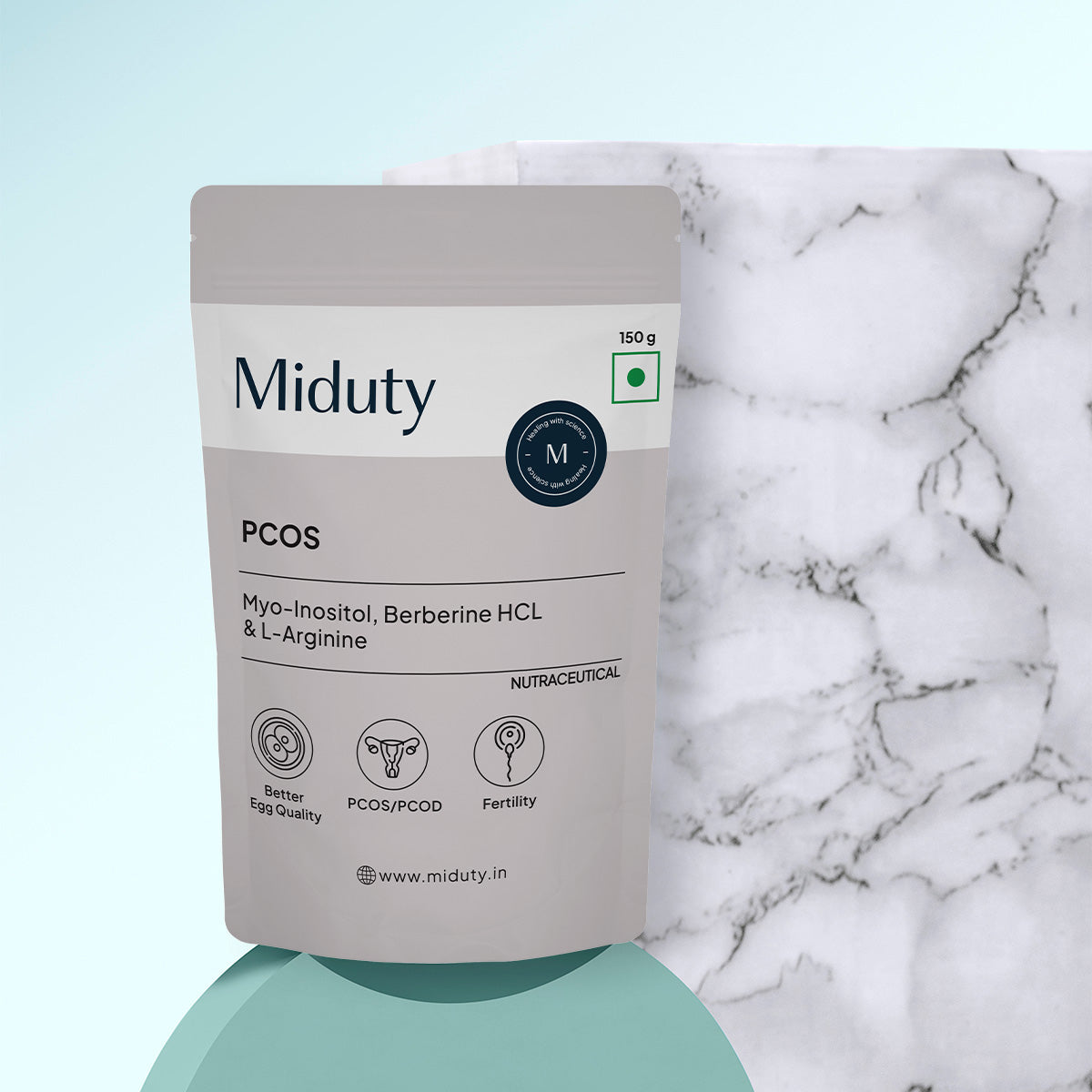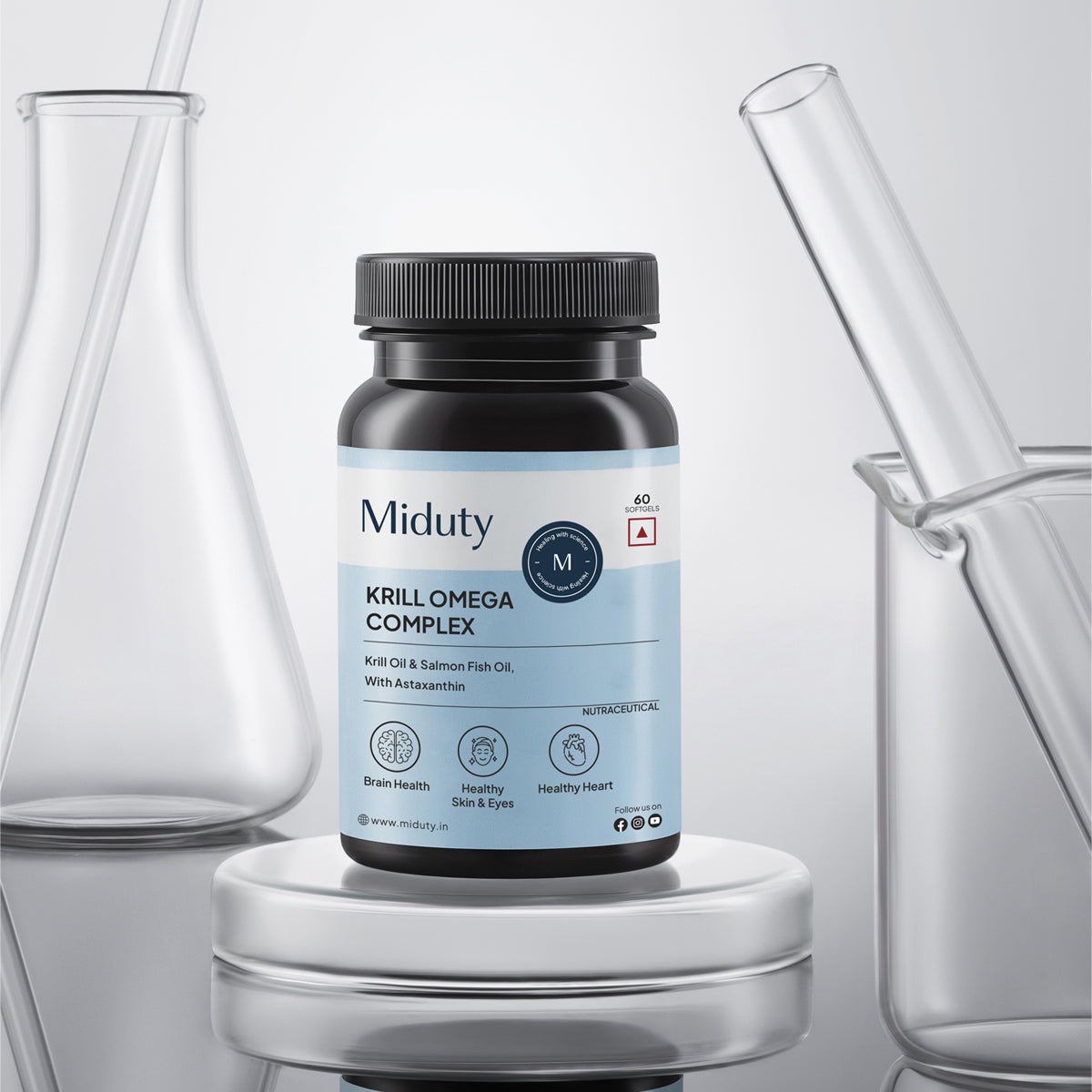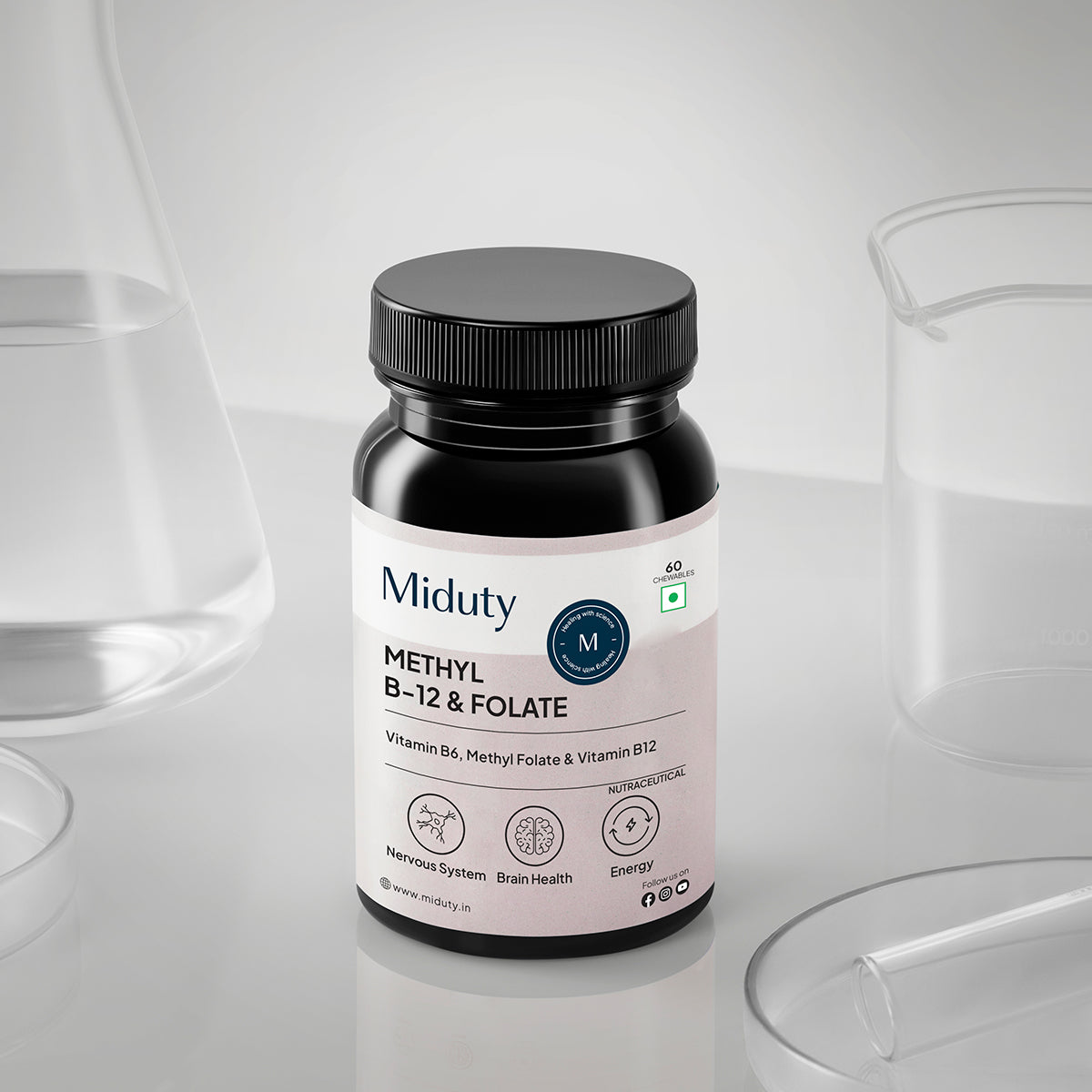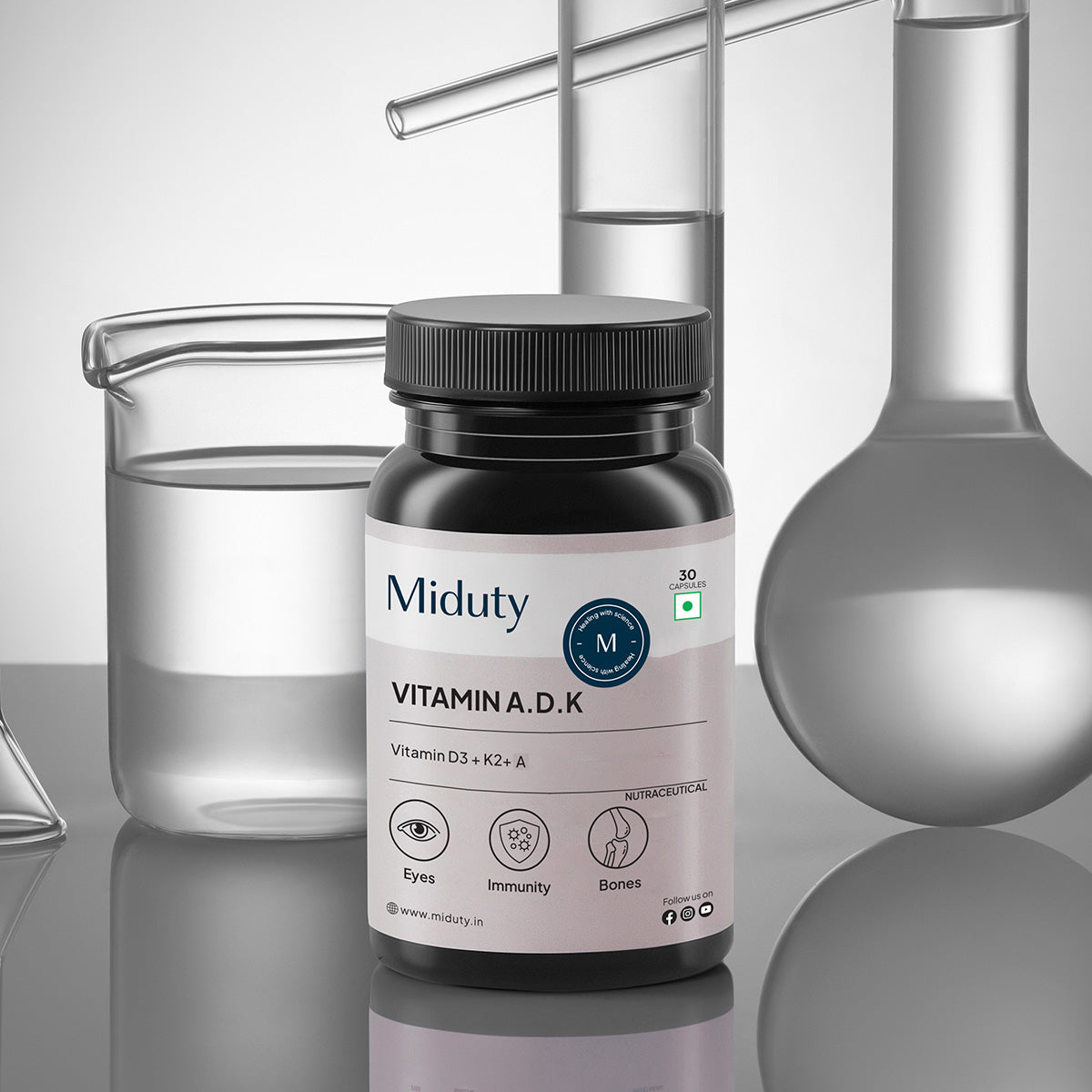
PCOD vs PCOS - Which Is More Dangerous?
Have you ever skipped a period or noticed sudden weight gain, facial hair, or acne out of nowhere? For millions of women, these aren't just random symptoms-they could be early signs of hormonal imbalances like PCOD or PCOS. While both conditions affect the ovaries and often get lumped together, they are still not the same. And when it comes to long-term health risks, one of them can be significantly more serious.
Today, we'll break down the difference between PCOD and PCOS, compare their symptoms, risks, and complications, and finally answer the question: PCOD or PCOS-which is more dangerous?
Key Takeaways
- Prevalence: PCOS/PCOD is very common nowadays, largely driven by poor lifestyle and hormonal imbalance, affecting up to 22.4% of the female population in India.
- 70% of the women with such conditions remain undiagnosed and treat these symptoms as normal.
- PCOS (Polycystic Ovarian Syndrome) is a metabolic disorder with endocrine roots and is largely associated with chronic inflammation and insulin resistance.
- PCOS is generally considered more severe due to its association with a higher risk of long-term health complications like infertility, diabetes, cardiovascular diseases, and endometrial cancer.
- Both conditions are manageable - While PCOD can often be managed with lifestyle modifications, PCOS may require medical intervention, including hormonal therapies.
What is PCOD (Polycystic Ovarian Disease)?
PCOD is a hormonal condition where the ovaries release a large number of immature or partially mature eggs. These eggs do not get released properly during ovulation and instead turn into cysts inside the ovaries. This can disrupt the menstrual cycle and lead to various symptoms. The primary causes of PCOD are believed to be hormonal imbalances and poor lifestyle habits such as lack of exercise, unhealthy diet, and stress.
Common Symptoms of PCOD
Women with PCOD often experience irregular menstrual cycles, where periods may be delayed or skipped altogether. Weight gain is another common symptom, especially around the abdomen. Other visible signs include hair thinning or hair loss, particularly from the scalp, and persistent acne. Ovarian cysts, which are small fluid-filled sacs, are frequently found during ultrasounds.
Causes and Risk Factors of PCOD
Several lifestyle-related factors contribute to PCOD. A poor diet rich in processed foods and sugars can trigger hormonal imbalances. Sedentary habits and lack of physical activity worsen the condition. Obesity, especially abdominal obesity, increases the risk. Chronic stress is also a major contributor. In some women, insulin resistance-where the body doesn't use insulin effectively-plays a significant role.
What is PCOS (Polycystic Ovary Syndrome)?
PCOS is a more complex and severe endocrine disorder that not only affects the ovaries but also disrupts metabolism and impacts several organs. It is commonly associated with elevated levels of male hormones (androgens), which interfere with the normal functioning of the ovaries. Unlike PCOD, PCOS is classified as a metabolic syndrome with long-term health implications.
Common Symptoms of PCOS
The symptoms of PCOS are usually more intense. Many women experience missed or completely absent periods. Excessive hair growth on the face and body (hirsutism) is common due to higher androgen levels. Acne and oily skin are also frequent issues. Weight gain, especially around the belly, is another major symptom. Most notably, PCOS is a leading cause of infertility due to chronic anovulation (lack of ovulation).
Causes and Risk Factors of PCOS
PCOS is influenced by a mix of genetic and lifestyle factors. A family history of PCOS can increase the likelihood of developing the syndrome. Hormonal imbalances, especially increased testosterone and luteinizing hormone (LH), play a central role. Insulin resistance is another key driver, contributing to weight gain and irregular cycles. Chronic inflammation in the body may also trigger or worsen PCOS symptoms.
Key Differences Between PCOD and PCOS
Medical Classification
PCOD is a disease - it can be managed and doesn't always affect fertility. PCOS, on the other hand, is a syndrome, meaning it has a broader impact on multiple systems in the body.
Hormonal Imbalance Severity
PCOD shows mild hormonal disturbances, whereas PCOS has significantly higher androgen levels, which mess up ovulation more seriously.
Impact on Fertility
Women with PCOD may face minor delays in conceiving, but women with PCOS often need medical help due to more severe ovulation issues.
Long-Term Health Risks
PCOS is more dangerous because it can lead to:
- Type 2 diabetes
- Endometrial cancer
- Cardiovascular diseases
- High blood pressure
Which Is More Dangerous – PCOD or PCOS?
Understanding whether PCOD or PCOS is more dangerous requires us to look beyond just the symptoms and consider how each condition impacts a woman's overall health, fertility, and long-term well-being. While both are hormonal disorders involving the ovaries, the degree to which they affect the body and the complications they cause are quite different.
Let's understand their severity in detail:
PCOD – Manageable with Lifestyle Changes
PCOD, or Polycystic Ovarian Disease, is generally considered less severe. It is more of a hormonal imbalance caused by poor lifestyle choices such as an unhealthy diet, lack of physical activity, and stress. While it does cause issues like irregular periods, acne, and weight gain, PCOD can usually be managed effectively through simple changes in daily habits.
With regular exercise, a balanced diet, proper sleep, and stress management, many women with PCOD can regulate their menstrual cycles naturally. In fact, women with PCOD often retain the ability to ovulate and can conceive without major medical interventions. The condition doesn't typically interfere with metabolic health on a deeper level, making it less dangerous when compared to PCOS.
PCOS – A Serious Metabolic and Endocrine Disorder
PCOS, or Polycystic Ovary Syndrome, is a more complex and chronic condition that affects not just the reproductive system, but also the body's metabolism and hormone regulation at large. It is often classified as a metabolic disorder, meaning it disrupts how the body processes energy, especially in relation to insulin resistance and fat storage.
Unlike PCOD, PCOS often causes anovulation - where the ovaries don't release an egg at all - which can make it significantly harder to conceive. But the dangers don't stop there. Women with PCOS are at a much higher risk for serious long-term health complications, including:
1. Type 2 Diabetes: Studies suggest that women with PCOS are 10 times more likely to develop Type 2 diabetes due to insulin resistance. Additionally, they face a significantly higher risk of pregnancy complications such as miscarriage, gestational diabetes, and preeclampsia.
2. Cardiovascular Diseases: Elevated cholesterol levels, high blood pressure, and systemic inflammation increase the risk of heart disease.
3. Endometrial Cancer: Chronic anovulation can cause the uterine lining to thicken abnormally, increasing cancer risk.
4. Depression and Anxiety: Hormonal imbalances and visible symptoms like facial hair and acne can take a toll on mental health.
Managing PCOS often requires more than just lifestyle changes. It may involve medications to control insulin levels, hormonal therapy to regulate periods, and fertility treatments if conception is a goal.
Health Complications of PCOD & PCOS
|
Condition |
Risk of Infertility |
Diabetes Risk |
Cardiovascular Risk |
|
PCOD |
Mild |
Low |
Low |
|
PCOS |
High |
High |
Moderate to High |
Infertility: In PCOD, ovulation is irregular but still occurs, so natural conception is possible. In PCOS, lack of ovulation is more common, making it one of the leading causes of infertility.
Diabetes Risk: PCOD doesn't significantly impact insulin sensitivity unless combined with obesity. In contrast, PCOS is strongly tied to insulin resistance and prediabetes. .
Heart Health: PCOS increases bad cholesterol (LDL), lowers good cholesterol (HDL), and promotes high blood pressure - all of which contribute to cardiovascular risk.
Diagnosis and Tests
How is PCOD diagnosed?
Diagnosing PCOD usually begins with a detailed review of your menstrual history to check for irregularities. A pelvic ultrasound is commonly used to detect the presence of multiple cysts on the ovaries. Additionally, hormonal blood tests help assess levels of androgens, LH, FSH, and other key hormones. These tests together help rule out other potential causes of symptoms and confirm PCOD.
How is PCOS Diagnosed?
PCOS is diagnosed using the Rotterdam Criteria, which states that a woman must meet at least two out of three of the following conditions:
- Irregular or absent periods
- Signs of excess androgens (like facial hair, acne, etc.)
- Polycystic ovaries, visible in an ultrasound report
Additional diagnostic tools include a glucose tolerance test and insulin level check to evaluate insulin resistance, which is commonly seen in PCOS patients.
Treatment Options
Managing PCOD and PCOS involves a combination of lifestyle changes, medications, and natural remedies. The goal is to regulate hormones, reduce symptoms, and prevent long-term complications.
Lifestyle and Diet Management
A healthy lifestyle is the cornerstone of managing both conditions. Here are some effective strategies:
- Follow a low-carb, high-protein diet to stabilize blood sugar and insulin.
- Include high-fiber foods like vegetables, whole grains, and legumes to improve digestion and hormone balance.
- Try intermittent fasting under medical supervision to regulate metabolism and insulin response.
- Engage in light exercises such as yoga and walking to reduce stress and promote hormonal health.
Natural Remedies and Supplements
In addition, many women find relief with natural supplements:
- Inositol (especially myo-inositol and D-chiro inositol) helps improve insulin sensitivity and restore ovulation.
- Omega-3 fatty acids support hormone regulation and reduce inflammation.
- Herbal teas like cinnamon and spearmint tea have shown benefits in balancing hormones and reducing androgen levels.
Preventive Tips
Preventing the worsening of PCOD or PCOS symptoms involves mindful eating and consistent physical activity. Small, sustainable changes can make a big difference.
Foods to Eat and Avoid
Eat More Of:
- Leafy greens (spinach, kale, fenugreek)
- Gluten-free grains (quinoa, oats, brown rice)
- Nuts and seeds (flaxseeds, chia seeds, almonds)
Make sure you consume overnight-soaked seeds only.
Avoid:
- Refined sugar (sweets, colas, packaged juices)
- Dairy (for most women, dairy worsens symptoms)
- Processed carbs (white bread, pasta, junk food)
Exercise and Daily Habits:
- Incorporate strength training 2–3 times a week to improve insulin sensitivity.
- Aim for 10,000 steps per day to maintain a healthy weight and metabolism.
- Practice meditation or deep breathing daily to reduce stress-related hormonal imbalances.
- Stick to early bedtimes to improve sleep quality and hormonal balance.
Conclusion
While both PCOD and PCOS need medical attention, PCOS is more dangerous due to its systemic involvement. It is a chronic syndrome with long-term consequences that go beyond irregular periods or acne. PCOS significantly affects metabolic, cardiovascular, and reproductive health.
Early diagnosis, regular monitoring, and a combination of medical and lifestyle interventions can help manage the symptoms and reduce the risks.
If you're struggling with symptoms like weight gain, irregular periods, or acne, consult a healthcare provider. The sooner you identify the condition, the better you can manage it.
Frequently Asked Questions on PCOD vs. PCOS -
Q1. Is PCOS more dangerous than PCOD?
Yes, PCOS is generally considered more serious than PCOD. PCOS is a hormonal disorder that can lead to long-term health risks like type 2 diabetes, heart disease, infertility, and endometrial cancer if not managed properly. PCOD, on the other hand, is more of a lifestyle-related condition and is often easier to manage with diet and exercise.
Q2. Which is curable, PCOD or PCOS?
PCOD can often be reversed or managed effectively through lifestyle changes such as a healthy diet, regular exercise, and stress reduction. PCOS, while not completely curable, can be controlled with the right combination of medical treatment and lifestyle modifications to reduce symptoms and complications.
Q3. Can women with PCOS and PCOD get pregnant?
Yes, women with both PCOS and PCOD can get pregnant. However, PCOS may make it more challenging due to irregular ovulation. With proper medical support, hormonal balancing, and lifestyle changes, many women with these conditions conceive naturally or with assisted reproductive techniques.
Q4. How to detect PCOS or PCOD?
Diagnosis typically involves a combination of blood tests (to check hormone levels), pelvic ultrasound (to look for cysts in the ovaries), and assessment of symptoms like irregular periods, acne, or weight gain.
A gynecologist or endocrinologist can confirm the condition based on medical history and test results.
Q5. Will PCOD turn into PCOS?
No, PCOD does not turn into PCOS. They are separate conditions with different underlying causes, although they may share some symptoms. PCOD is more common and less severe, while PCOS is a more complex hormonal disorder. However, unmanaged PCOD can lead to complications that resemble PCOS over time.
References













